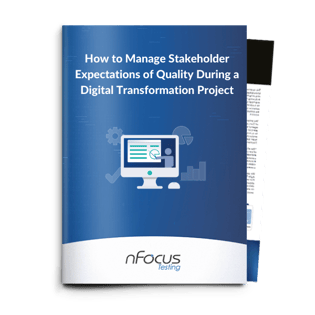WHITE PAPER: MANAGING STAKEHOLDER EXPECTATIONS
"Expectations were like fine pottery. The harder you held them, the more likely they were to crack.” - Brandon Sanderson, The Way of Kings.
It’s possible to keep your stakeholders happy, even if quality is not great, simply by managing their expectations from start to finish.
By consulting stakeholders, they can see that you and the team have a real challenge and are doing whatever you can to resolve it. It’s important to properly consider stakeholder’s feedback, advice and recommendations and leverage their support. This means they can then become part of the extended team and part of the solution.
This article explores five key principles for managing stakeholder expectations during digital transformation:
Understanding and agreeing quality expectations: A necessary part of successful digital transformation is establishing a clear understanding of stakeholder expectations regarding the quality of the end product or service.
How to ensure the implementation meets the expectations: To achieve this, companies and organisations must prioritise effective project management, using methodologies like Agile or DevOps to ensure continuous development and feedback.








.png)
